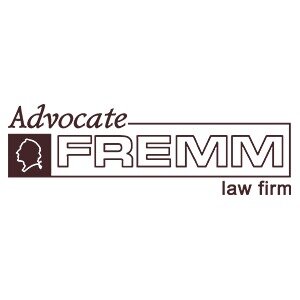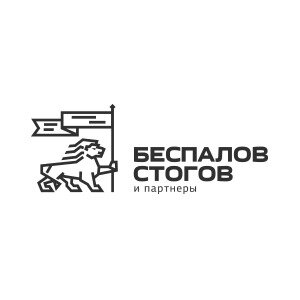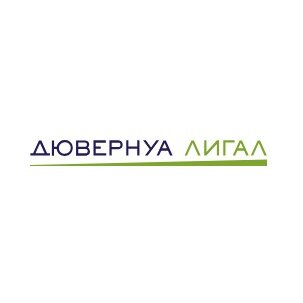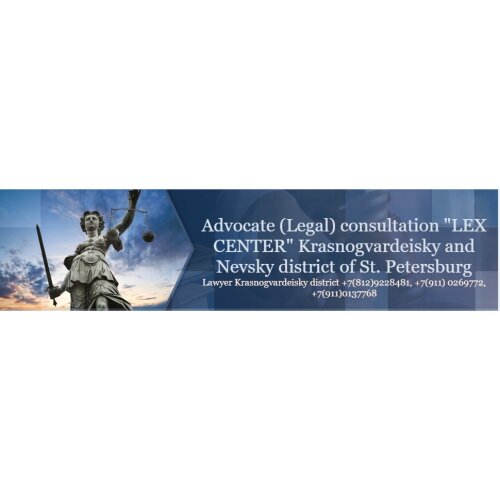Best Sanctions & Export Controls Lawyers in St Petersburg
Share your needs with us, get contacted by law firms.
Free. Takes 2 min.
List of the best lawyers in St Petersburg, Russia
About Sanctions & Export Controls Law in St Petersburg, Russia
Sanctions and export controls are vital aspects of international trade law that affect businesses, individuals, and organizations operating in St Petersburg, Russia. Sanctions are restrictive measures imposed by countries or international organizations that can limit or prohibit certain financial transactions or the trading of goods and services with specific countries, entities, or individuals. Export controls are regulations that govern the export of sensitive technologies, goods, and services, restricting the transfer of certain items to protect national security or meet international obligations.
In St Petersburg, as throughout Russia, sanctions and export controls are shaped both by Russian domestic law and the broader geopolitical context. The city serves as a key port and commercial hub, making compliance with sanctions and export controls especially critical for local businesses engaged in international trade. The Russian government enforces its own sanctions and reacts to international sanctions, particularly those from the European Union, United States, and other countries, which can significantly impact commercial activities.
Why You May Need a Lawyer
Legal support is often essential for navigating the complexities of sanctions and export controls in St Petersburg. Common situations where you may need a lawyer include:
- Conducting due diligence to ensure compliance with current sanctions regimes
- Interpreting the impact of new sanctions on ongoing or planned transactions
- Obtaining licenses for the legal export of controlled goods and technologies
- Responding to government investigations or enforcement actions related to sanctions breaches
- Resolving disputes arising from contract terminations or payment issues connected to sanctions
- Adapting contract terms and business practices to address new legal restrictions
- Guiding foreign businesses and investors on doing business in St Petersburg in light of current restrictions
- Providing training and policy drafting to ensure ongoing compliance within your company
Local Laws Overview
The legal landscape of sanctions and export controls in St Petersburg is governed by both federal laws and regional administrative practices. Key points include:
- Russian Federal Laws: The legal framework is largely set by federal legislation, including the Federal Law on Special Economic Measures and Decree of the President of the Russian Federation on the application of specific economic measures to ensure the country's security.
- Government and Presidential Decrees: These are regularly issued to update the list of banned or restricted countries, goods, and entities, and must be closely monitored by businesses.
- Export Control Regulation: Russia maintains a system of export controls over dual-use goods, military products, and sensitive technology. The Federal Service for Technical and Export Control (FSTEC) is a key regulator.
- Territorial Applicability: Although the laws are national, enforcement and administrative procedures may be carried out at a regional level, including customs authorities and local administrative courts in St Petersburg.
- Countersanctions: Russia has responded to Western sanctions with its own countersanctions, affecting imports, exports, and even the ownership of assets within Russia.
- International Compliance: Russian businesses often need to be aware of foreign sanctions that may affect their foreign partners, investments, or cross-border activities.
Frequently Asked Questions
What are sanctions in the context of St Petersburg, Russia?
Sanctions are legal restrictions imposed by Russia or by foreign governments on certain activities, individuals, or entities. These can include asset freezes, trade bans, or restrictions on financial transactions.
Who enforces export controls and sanctions in St Petersburg?
Federal authorities such as the Ministry of Economic Development, FSTEC, and the Federal Customs Service enforce export controls and sanctions across Russia, including in St Petersburg.
Which goods are subject to Russian export controls?
Controlled goods include military products, dual-use goods and technologies with both civilian and military applications, and certain raw materials or advanced technologies.
What penalties can result from violating sanctions or export controls?
Penalties can range from administrative fines and seizure of goods to criminal liability, including imprisonment, depending on the severity and intent of the violation.
How do countersanctions affect foreign companies operating in St Petersburg?
Countersanctions may restrict certain imports, bar transactions with sanctioned countries or entities, and impact property rights, affecting foreign subsidiaries or joint ventures in Russia, including St Petersburg.
Can I apply for a license to export controlled goods from St Petersburg?
Yes, in some cases, it is possible to obtain an export license. The process is handled by the relevant federal agencies and often requires detailed documentation and compliance assurances.
Are there local laws specific to St Petersburg for sanctions and export controls?
While the main regulatory framework is federal, local authorities may enforce national laws. There may also be regional administrative procedures relevant to customs and compliance in St Petersburg.
How can I ensure my business complies with all applicable sanctions?
Regularly review official registers of sanctioned entities, maintain thorough due diligence procedures, seek regular legal advice, and provide compliance training for staff.
What should I do if my goods are detained by customs in St Petersburg?
Contact a lawyer immediately to determine the reason for detention, ensure all paperwork and licenses are in order, and communicate with the customs authority to resolve any issues.
What is the impact of European Union and US sanctions on St Petersburg businesses?
These sanctions can limit access to Western financial systems, restrict certain technology imports, and complicate business relationships with Western entities. Their effect depends on your business sector, partners, and products involved.
Additional Resources
Several resources and organizations can assist with sanctions and export controls matters in St Petersburg:
- The Federal Service for Technical and Export Control (FSTEC) of Russia
- The Ministry of Economic Development of the Russian Federation
- The Federal Customs Service of Russia (FCS)
- The Chamber of Commerce and Industry in St Petersburg
- Russian Export Center, which provides consultation and support for exporters
- Local legal and compliance consultancies specializing in international trade law
- Embassies or trade missions for relevant export/import information and updates
Next Steps
If you require legal assistance regarding sanctions and export controls in St Petersburg:
- Identify the specific nature of your concern, such as a new transaction, a compliance issue, or an enforcement matter.
- Collect all relevant documentation, such as contracts, correspondence, and shipping papers.
- Contact a qualified legal specialist or law firm with experience in sanctions, export controls, and international trade law in Russia.
- Schedule a consultation to discuss your circumstances and obtain a detailed assessment of potential legal risks and necessary compliance steps.
- Stay informed by monitoring updates from official Russian agencies and seeking regular legal advice as rules and international relations evolve.
Proactive engagement with legal professionals can help protect your interests and minimize risks related to sanctions and export controls when doing business in St Petersburg, Russia.
Lawzana helps you find the best lawyers and law firms in St Petersburg through a curated and pre-screened list of qualified legal professionals. Our platform offers rankings and detailed profiles of attorneys and law firms, allowing you to compare based on practice areas, including Sanctions & Export Controls, experience, and client feedback.
Each profile includes a description of the firm's areas of practice, client reviews, team members and partners, year of establishment, spoken languages, office locations, contact information, social media presence, and any published articles or resources. Most firms on our platform speak English and are experienced in both local and international legal matters.
Get a quote from top-rated law firms in St Petersburg, Russia — quickly, securely, and without unnecessary hassle.
Disclaimer:
The information provided on this page is for general informational purposes only and does not constitute legal advice. While we strive to ensure the accuracy and relevance of the content, legal information may change over time, and interpretations of the law can vary. You should always consult with a qualified legal professional for advice specific to your situation.
We disclaim all liability for actions taken or not taken based on the content of this page. If you believe any information is incorrect or outdated, please contact us, and we will review and update it where appropriate.















